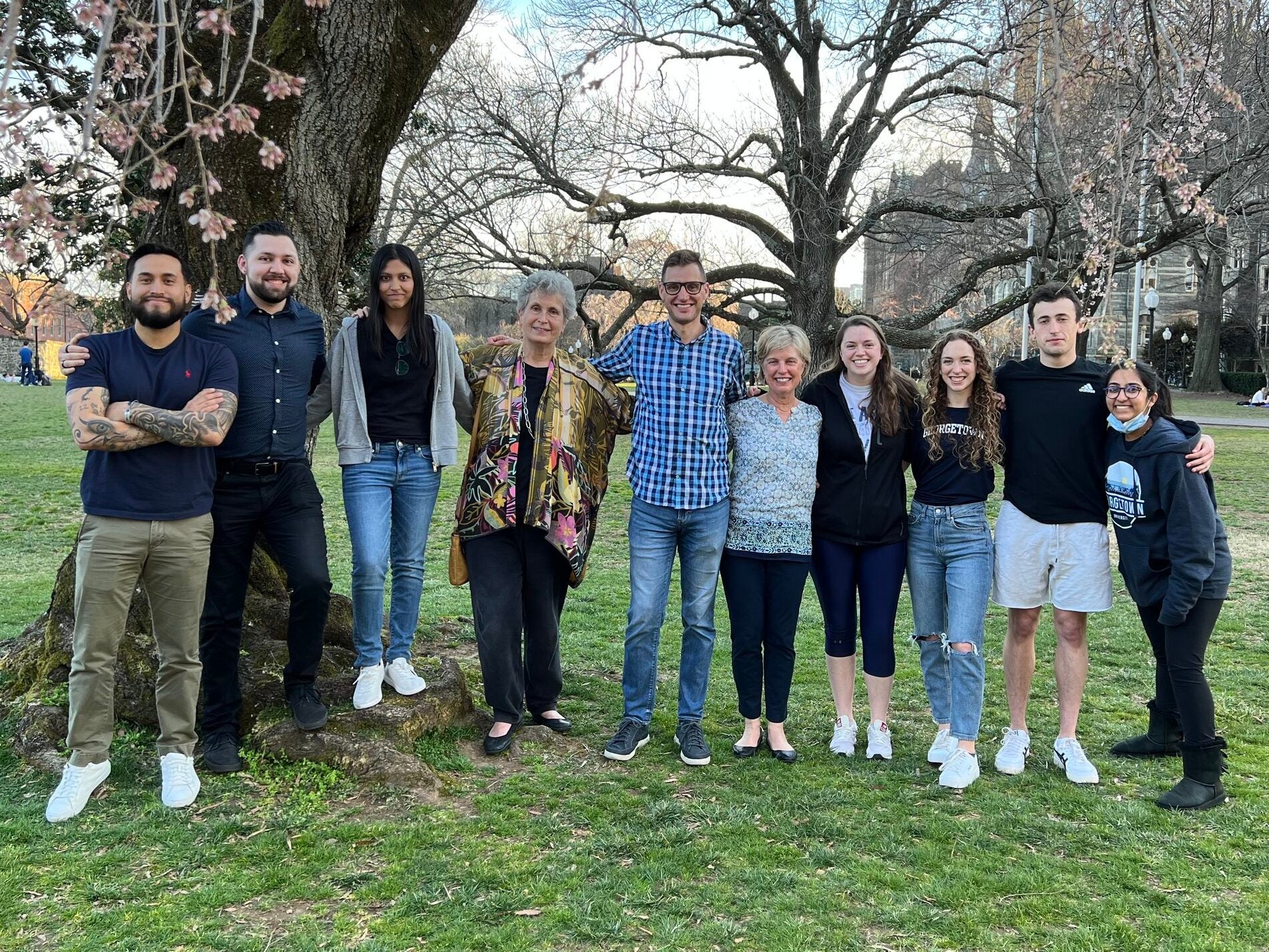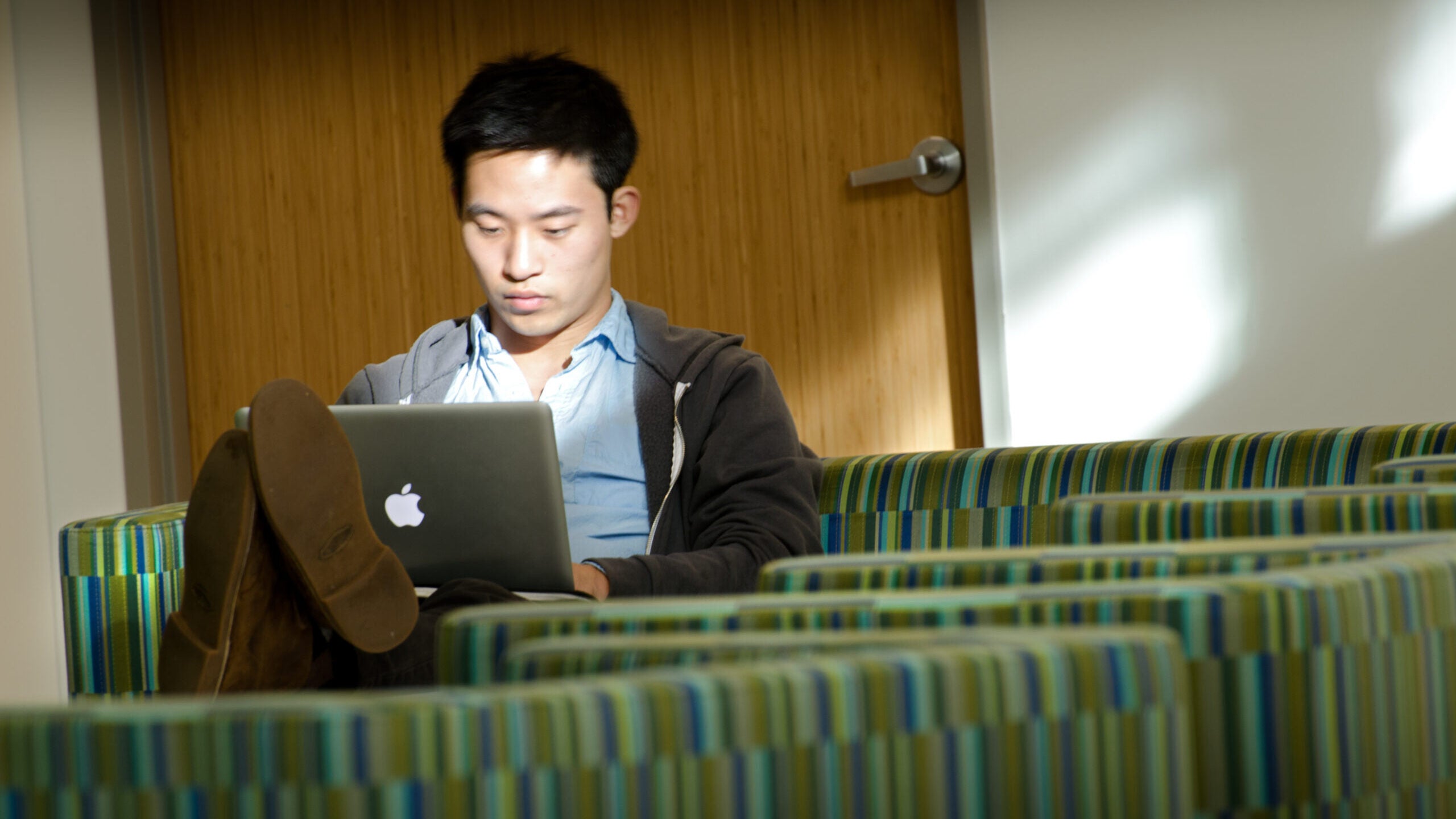How to Keep Students Engaged During Online Classes, According to Psychologists
It’s a bad hair day, the house is a mess and you’re still in bed. Luckily, you’re using Zoom and can turn the camera off.
This isn’t an isolated event, but a decision that everyone, from executives to students, has made throughout the pandemic. For educators, it poses a conundrum – does having the camera on help students focus? Are they really engaged with the class or occupied by something else? A new paper from Georgetown psychologists in Technology, Mind, and Behavior examines how students are affected by turning their cameras either on or off during large online classes.
“Contrary to students’ own expectations, they did not feel more fatigued when they were asked to have their cameras on during Zoom lectures,” says co-author Kostadin Kushlev. “Instead, by tracking students during real lectures, we found that when their cameras were on they were more engaged.”

Academic Mentorship
Kushlev, an Assistant Professor in the Georgetown College of Arts and Sciences Department of Psychology, mentored Adam Epstein-Shuman (C’22), who worked to complete the study as his honors thesis as a senior.
“While most students who have to take classes online are no stranger to Zoom fatigue, there exists a widespread misconception that being off camera will leave people less fatigued,” explained Epstein-Shuman. “Additionally, there is a general consensus that online classes are not nearly as engaging as their in-person counterparts.”
The researchers set out to test these notions through two field studies. In the first, they surveyed Georgetown students who were enrolled in online courses. A year later, they examined students enrolled in the same classes who were attending their lectures in person.
“Now we know that having your camera on during a large online lecture course can facilitate greater engagement while not incurring any increase of fatigue,” says Epstein-Shuman. “These findings, however, do not eliminate the underlying issue of Zoom fatigue; they only demonstrate an effective method of combating it.”
Kushlev’s Happy Tech Lab, where Epstein-Shuman works, empowers research into happiness, especially how modern technology can affect life quality and wellbeing.
“Adam’s enthusiasm and penchant for being a researcher became evident as soon as Adam joined the Happy Tech Lab as a rising junior,” says Kushlev. “Within Adam’s first year at the lab, he had already been a co-author on a peer-reviewed paper—an incredible achievement.”
For Epstein–Shuman, the studies offered a phenomenal opportunity to engage in real research with Kushlev.
“Dr. Kushlev was the best mentor I could have ever dreamed of,” Epstein-Shuman says. “With his guidance, advice, direction, and management, I was able to successfully navigate every aspect of getting a study published, from getting IRB approval to going through TMB’s peer review process. Being able to work with such a supportive mentor and get this incredible first-hand experience was the highlight of my undergraduate experience.”
-by Hayden Frye (C’17)
